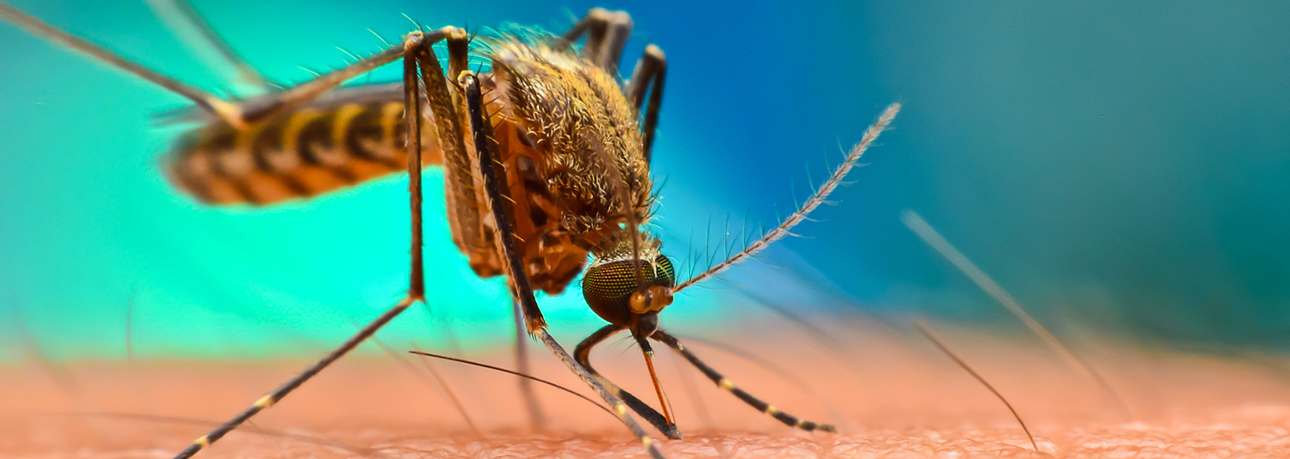Mosquito Pest Control Treatment & Removal Services
Mosquitoes in Orange County
Mosquitoes are a persistent nuisance in Orange County, particularly during the warmer months. These pests not only cause itchy bites but can also carry and transmit diseases. Understanding the types of mosquitoes in the area, their behavior, and the best control methods can help keep them at bay and reduce their impact on outdoor activities and public health.

Common Mosquitoes in Orange County
Southern House Mosquito (Culex quinquefasciatus)
Identification
Southern house mosquitoes are light brown with darker brown bands on their bodies. They typically range from 3-4 mm in length and have long, slender legs and wings covered in tiny scales.
Behavior
These mosquitoes are most active during dusk and nighttime hours. They prefer to breed in standing water, including storm drains, birdbaths, and neglected swimming pools. Southern house mosquitoes are known carriers of West Nile virus and other diseases.
Common Mosquitoes in Orange County
Southern House Mosquito (Culex quinquefasciatus)
Identification
Southern house mosquitoes are light brown with darker brown bands on their bodies. They typically range from 3-4 mm in length and have long, slender legs and wings covered in tiny scales.
Behavior
These mosquitoes are most active during dusk and nighttime hours. They prefer to breed in standing water, including storm drains, birdbaths, and neglected swimming pools. Southern house mosquitoes are known carriers of West Nile virus and other diseases.
Western Encephalitis Mosquito (Culex tarsalis)
Identification
This mosquito species is slightly darker than the southern house mosquito, with a distinct white band on its proboscis and white bands on its legs.
Behavior
Western encephalitis mosquitoes are most active in the early morning and evening. They thrive in rural and suburban areas where water sources, such as ponds and irrigation ditches, provide ideal breeding conditions. They are capable of transmitting West Nile virus, Western equine encephalitis, and other diseases.
Aedes Mosquitoes (Aedes aegypti & Aedes albopictus)
Identification
Aedes mosquitoes, commonly known as the yellow fever mosquito (Aedes aegypti) and the Asian tiger mosquito (Aedes albopictus), are small, dark-colored mosquitoes with white or silver striping on their legs and bodies.
Behavior
Unlike Culex species, Aedes mosquitoes are aggressive daytime biters. They prefer to lay eggs in small containers of water, such as flower pots, tires, and even bottle caps. These mosquitoes are potential carriers of diseases like Zika virus, dengue fever, and chikungunya.
Life Cycle
Mosquitoes undergo a four-stage life cycle:
1. Egg
Laid in or near water, eggs can survive dry conditions for months before hatching.
2. Larva
Once hatched, larvae (also known as “wigglers”) live in water, feeding on microorganisms and organic matter.
3. pupa
After several molts, larvae become pupae (or “tumblers”), a non-feeding stage where they develop into adult mosquitoes.
4. adult
Fully formed mosquitoes emerge from the pupal case and begin searching for a blood meal to reproduce.
Diet
Only female mosquitoes bite and feed on blood, as they require protein to produce eggs. They are attracted to body heat, carbon dioxide, and certain scents. Males, on the other hand, feed exclusively on nectar and plant juices.
Habitat
Mosquitoes breed in stagnant water sources, such as puddles, clogged gutters, birdbaths, and other water-holding containers. They are commonly found in shaded, humid areas with vegetation, where they can rest during the day before becoming active in the evening.
Key Takeaways and Control Methods
Mosquitoes are not just an annoyance; they pose a significant health risk due to the diseases they can transmit. Here are some effective ways to manage and prevent mosquito infestations:
Eliminate Standing Water
Regularly empty and clean containers that collect water, such as birdbaths, plant saucers, and clogged gutters.
Maintain Landscaping
Trim bushes and tall grass to reduce resting places for adult mosquitoes.
Use Mosquito Repellents
Apply EPA-approved repellents containing DEET, or oil of lemon eucalyptus when spending time outdoors.
Install Screens
Ensure windows and doors have tight-fitting screens to keep mosquitoes from entering homes.
Encourage Natural Predators
Promote mosquito-eating species like dragonflies, bats, and certain fish (e.g., mosquito fish in ponds).
Professional Treatment
For severe infestations, professional mosquito control treatments can provide targeted relief and long-term prevention.
If mosquitoes are becoming a persistent problem around your home or business, our team offers effective solutions to reduce their populations and keep your outdoor spaces comfortable. Contact us today for an inspection and a customized mosquito management plan!
our services
Simple Solutions To Complex Problems at an Affordable Rate

Residential
We offer a variety of plans custom fit for your needs! Whether its an endless trail of ants, or strange noises in the walls, we’ve got your pest control needs covered!

Commercial
We can stop pests from causing costly machinery repairs, fines, closures, and damage to your reputation!

rodents
Various species of rats and mice inhabit the Orange County area. Remove rodents from your home permanently with our exclusion services.

mosquito
We use the In2Care system to eliminate mosquitoes where they breed—protecting your family’s health and comfort.

